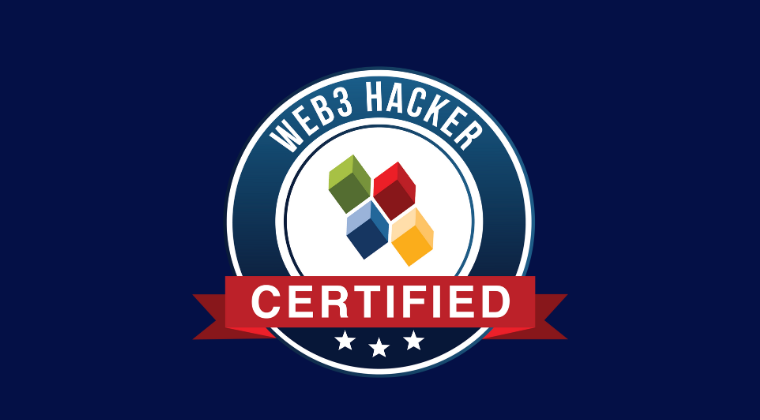Trusted by employees at leading organizations





















Recommended Courses
Blockchain Fundamentals - Free Course
Unlock the world of blockchain with our Blockchain Fundamentals course. Dive into the basics, gain insights, and begin your journey in blockchain technology today.
- 1 Hour
- 4 Lessons
- Fundamentals
Solidity Fundamentals
Learn how to create and deploy smart contracts on the Ethereum blockchain with Solidity.
- 3 Hours
- 70 Lessons
- Fundamentals
Smart Contracts Security
Learn to identify vulnerabilities, implement robust security measures, and safeguard digital agreements in decentralized applications. Develop the expertise needed to create secure and reliable smart contracts.
- 3 Hours
- 58 Lessons
- Expert
DeFi Security Fundamentals
Learn the security threats in DeFi projects and best practices for mitigating them.
- 3 Hours
- 62 Lessons
- Intermediate
Recommended Certifications
Web3 Security Expert Career Path FAQs
The Web3 Security Expert career path includes four different courses that’ll help you familiarize yourself with smart contract vulnerabilities and DeFi security risks. This career path includes a free blockchain fundamentals course as the first step in your journey. As you advance in the career path, you will move towards the training courses on solidity fundamentals, smart contract security, and DeFi security fundamentals.
Yes! 101 Blockchains offers expert support with the Web3 Security Expert career path. With our support, you will learn the essential concepts of web3 security without any obstacles or difficulties. You can ask our experts any question regarding the courses in the career path, and you will get a prompt answer.
The Web3 Security Expert career path is open for anyone who wants to learn and specialize in web3 security. You don’t have to abide by specific prerequisites before enrolling in the Web3 Security Expert career path. However, prior knowledge of web3 fundamentals, smart contract development, and DeFi fundamentals could help learners understand the basic concepts faster.
The most critical security challenges in the domain of web3 include smart contract vulnerabilities, wallet security, and governance vulnerabilities. In addition, blockchain consensus vulnerabilities, network attacks, and lapses in secure key management also present security risks in web3.
DDoS or Distributed Denial of Service attacks are a significant threat in the field of web3. The attack involves flooding a server or network with high traffic, which extends beyond the capacity of the server or the network. As a result, the server or network becomes unavailable. DDoS attacks in web3 influence the availability of blockchain nodes, thereby disrupting the functionalities of decentralized apps and transactions.
Web3 security skills add many lucrative career opportunities for aspiring professionals. For example, a web3 security auditor can expect to earn an average annual salary of between $60,000 and $155,000. On top of it, some companies are willing to pay more than $430,000 for web3 and blockchain security experts. The Web3 Security Expert career path could help you prepare for such roles and boost your career growth.
The Web3 Security Expert career path is ideal for anyone wanting to pursue a career in web3 security. Having said that, some candidates are a perfect fit for the Web3 Security Expert career path, and they are blockchain and web3 developers, entrepreneurs and innovation managers, and product/project managers. Blockchain and web3 developers can use this career path to learn the best practices for creating security web3 solutions. Similarly, entrepreneurs and innovation managers can explore ideas for new web3 security solutions.
Yes, the Web3 Security Expert career path is available with the Premium plan at 101 Blockchains. The Premium membership plan opens up all the courses in the training library along with all the certification programs.
The common vulnerabilities for smart contracts include unhandled exceptions, reentrancy attacks, and integer overflow/underflow. Some of the proven mitigation strategies for smart contract vulnerabilities include rigorous testing and standard libraries. Furthermore, extensive code reviews, security audits, and implementation of proper access control mechanisms can also help address the risks due to smart contract vulnerabilities.
Security audits are one of the proven practices that ensure the security of web3 applications. The best practices involved in security audits include comprehensive code reviews, penetration testing, and automated security tools. Web3 security audits focus on analyzing the attack surface alongside relying on external security auditors. At the same time, web3 security audits must comply with popular security standards and frameworks like the Open Web Application Security Project guidelines.






